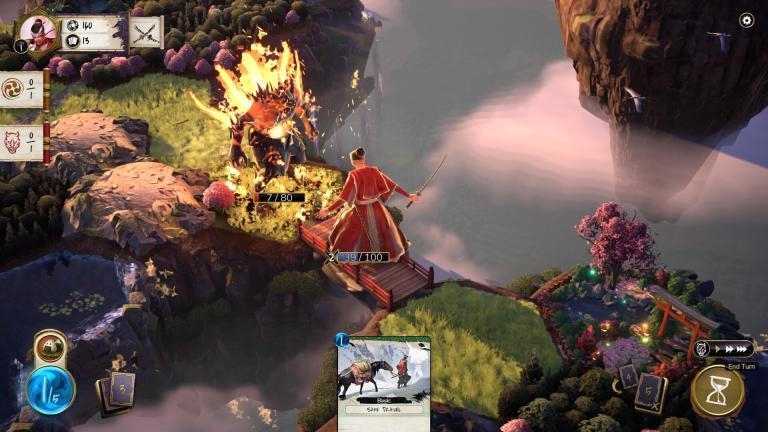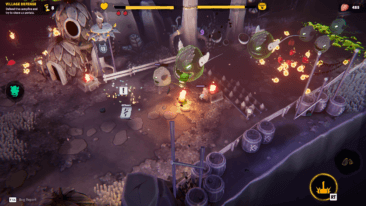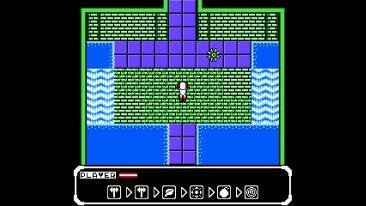Mahokenshi by Game Source Studio
Mahokenshi brings a distinctly Japanese-inspired flavor to the widely popular deck-builder RPG. The highlight here, though, isn’t so much the setting as the mechanics, which are familiar enough to be easily grasped but interesting enough that Game Source Studio‘s take on the venerable genre doesn’t just feel like another clone. Fellow IGR writer TheOvermatt and I both played this one, and we both came away impressed.
Tales from the Floating World
Set in a celestial spirit realm above a mythological Japan, Mahokenshi is loaded with visual signifiers of its thematic inspirations, from its vibrant, painterly color palette to on-screen images of ornately carved cedar treasure chests and mystical warriors bedecked in Edo period-inspired helmets. The score, of course, features no shortage of synthesized shakuhachi flute.
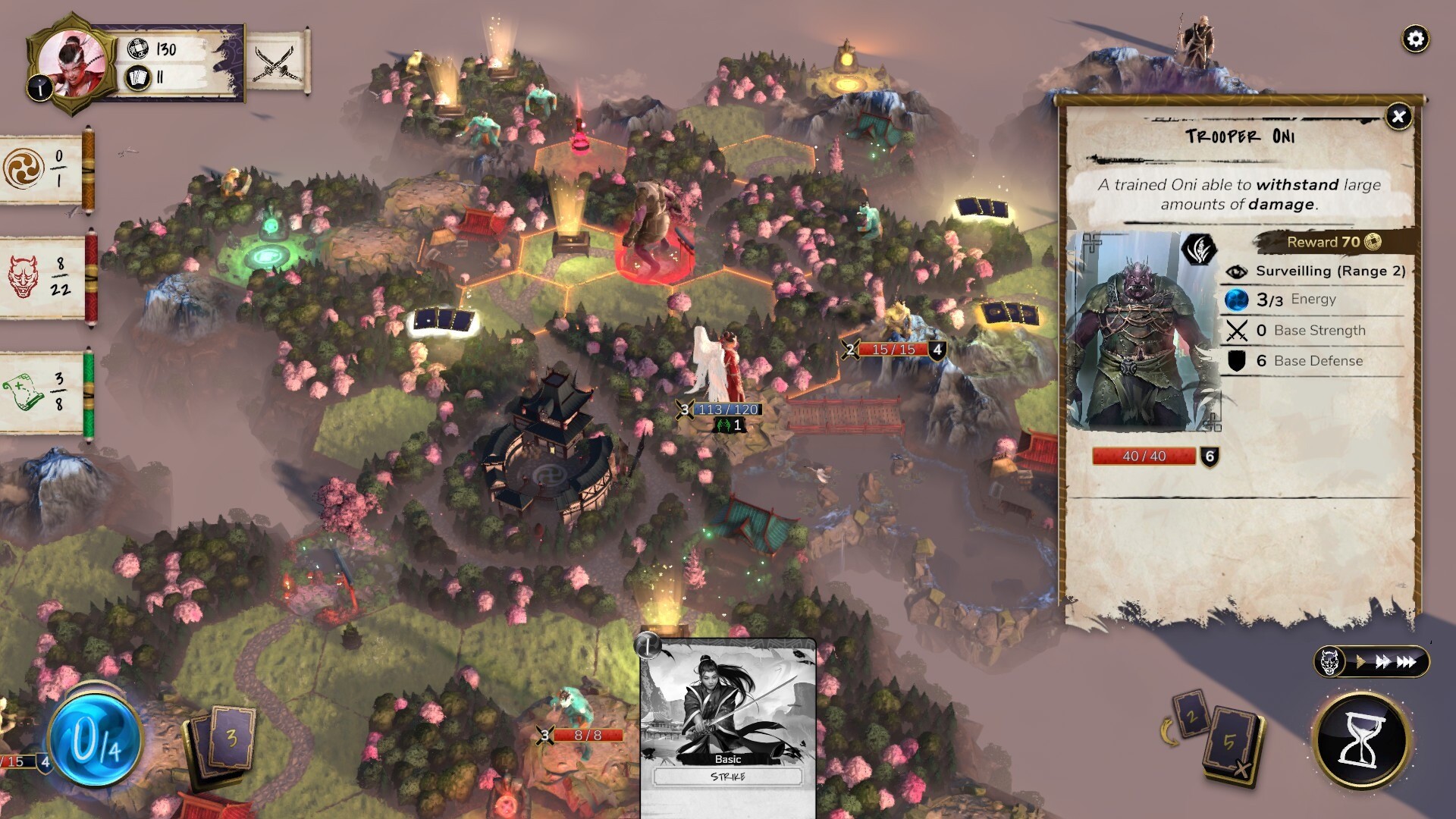
“Kudos as well to the developers for making the maps vibrant but easy to understand. Games like this sometimes get bogged down in details, but Mahokenshi gets this just right.” ~ TheOvermatt
The main characters, each with their own sets of cards and abilities, are based loosely on the elements of air, water, fire, and earth. Each is tied to a creature from Japanese folklore: the tengu, a winged mountain goblin, is connected to the air element, for example, with some cards giving the ability of flight.
It’s frankly a pretty surface-level exploration of Japanese folklore. Of course, it’s not like most “conventional” fantasy games’ elves, goblins, or dragons constitute deep engagement with Norse mythology and literature, either, and at least Mahokenshi is trying something different.
Know the Way of the Warrior
If Mahokenshi’s thematic approach makes a powerful initial impression, its mechanics make a deeper and more significant one. It combines turn-based RPG and card-based fighting with twists on familiar formulae.
For starters, cards can represent both combat actions and movement – the aforementioned flying abilities, for example, or horses that let your character move quickly through tough terrain – and map movement and combat occur simultaneously rather than being split into separate interfaces.
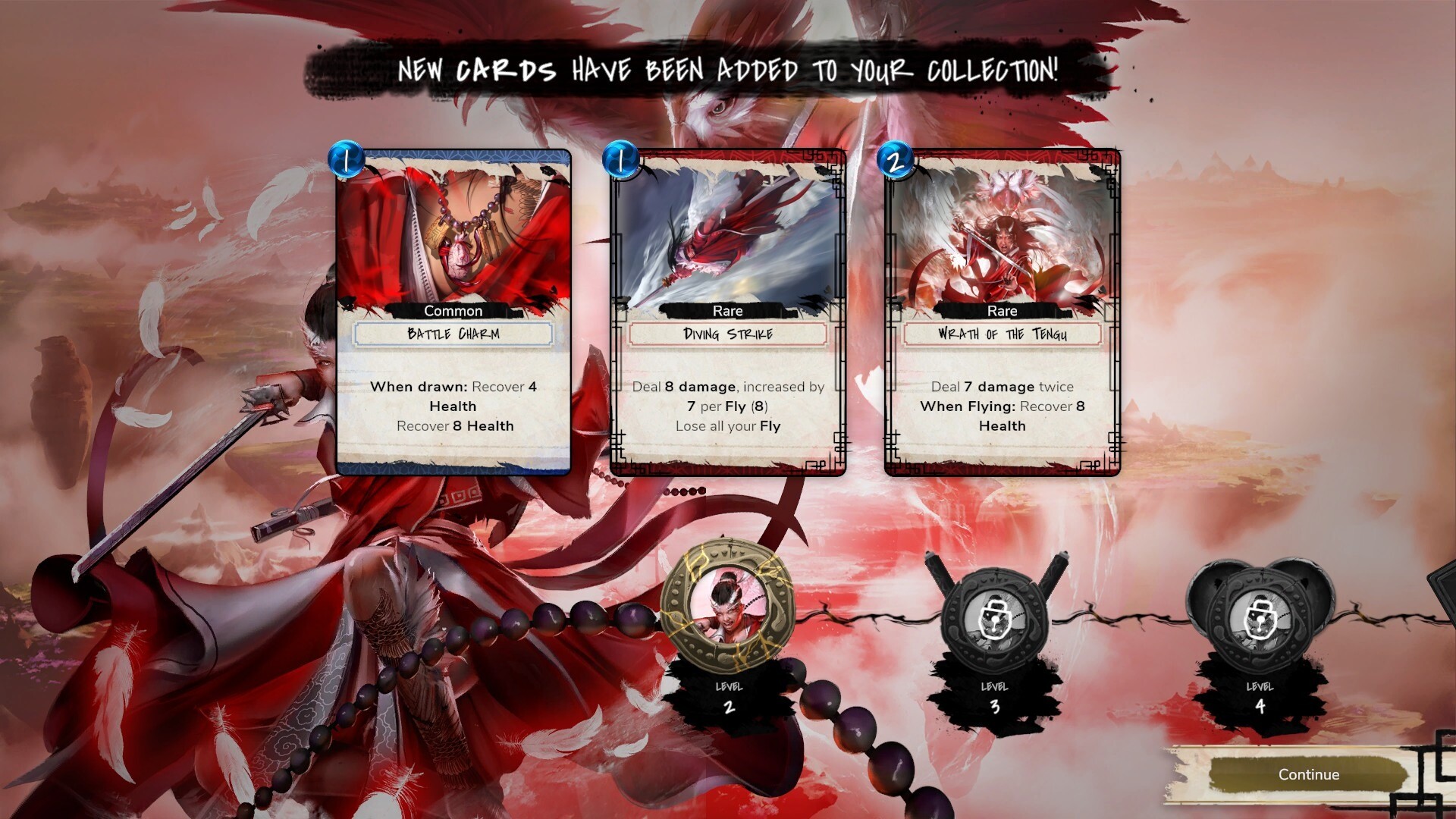
Also notable: Mahokenshi isn’t procedurally generated. Naturally, there’s plenty of RNG happening behind the scenes as far as card draws (and the discovery of new cards), but there’s also real level design here. There’s character progression, as well, although at first, it’s a bit tough to figure out which cards or talismans – items that give passive bonuses – are carried between levels, as not all of them are.
“I cannot overstate just how refreshing I found it to play a deck-builder that actually has a purposefully crafted world and legitimate progression. Not to disparage games that don’t (I clearly loved Monster Train after all), but it felt like a nice change from the myriad of other games trying to shamelessly emulate Slay the Spire.” ~ TheOvermatt
The Path Is Difficult
There are also some steep difficulty curves on display. In particular, quite a few levels are timed. Given that both fights and world movement happen on the same turn-based map, it’s easy to get bogged down in a fight and fail a mission – even if you defeat all your foes – simply because your goals are too widely dispersed around the map.
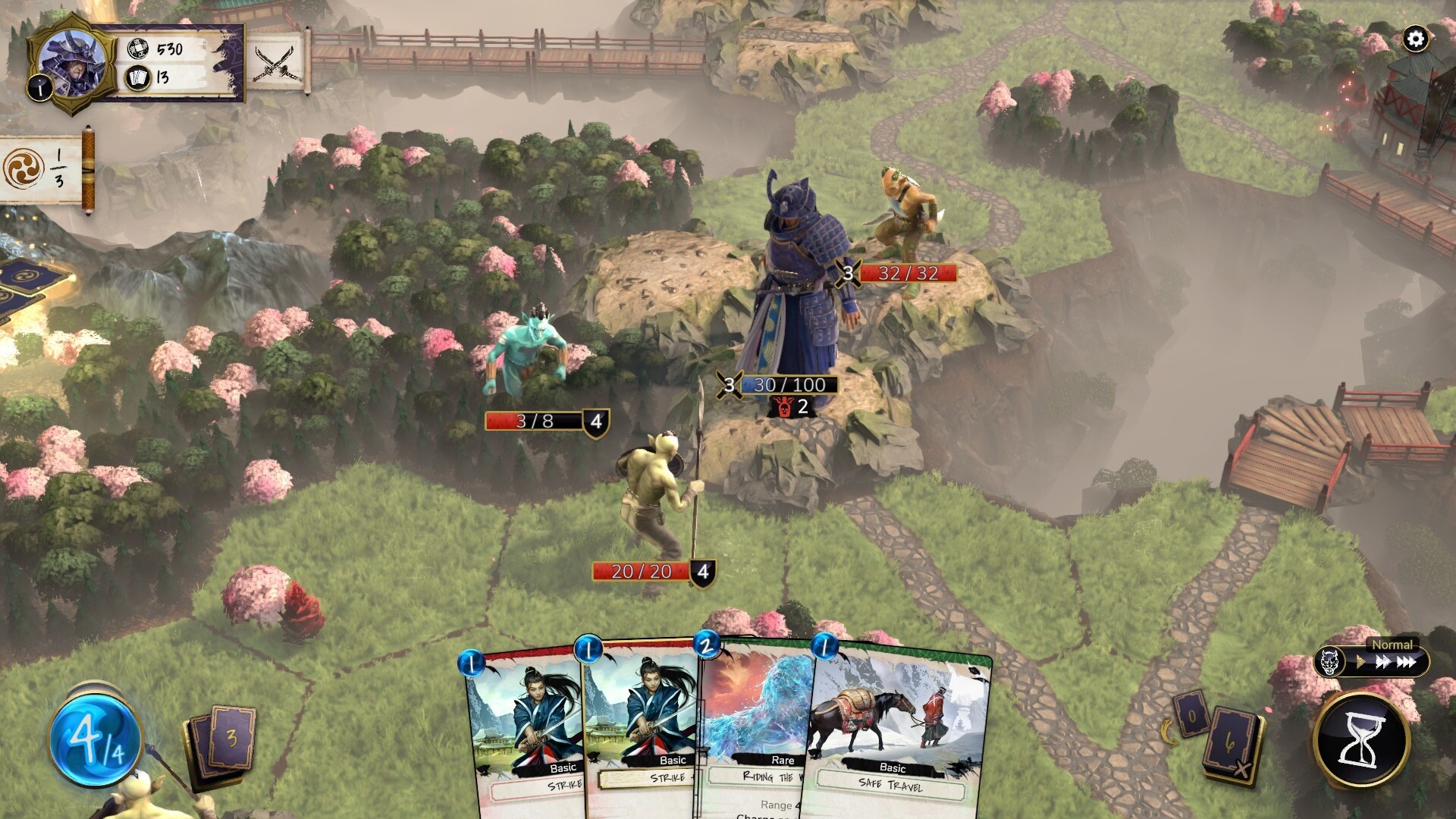
This is where those movement cards get crucial. It’s a learning curve, but it’s also an atypical approach that forces some outside-the-box thinking, especially if you usually approach games like this with a level-clearing “kill all the monsters” mindset. Navigating the map is more than just a series of choices between shops, fights, or upgrade opportunities. It’s also crucial to successfully completing missions, a rarity for most deck-builders.
“I initially thought the movement cards were just glut taking up your deck. Boy, was I wrong. I can’t remember the last time I played a hex-based RPG where positioning and careful movement was so crucial. It’s actually a legitimately impressive system.” ~ TheOvermatt
Mahokenshi doesn’t reinvent the wheel with character design, thematic approach, or deck-building strategy mechanics, but it tweaks all of the above enough to stand out. In a crowded field of so many games that feel like clones of one another, that’s a significant achievement.
Mahokenshi is available via Steam.
Watch the trailer for Mahokenshi below:

